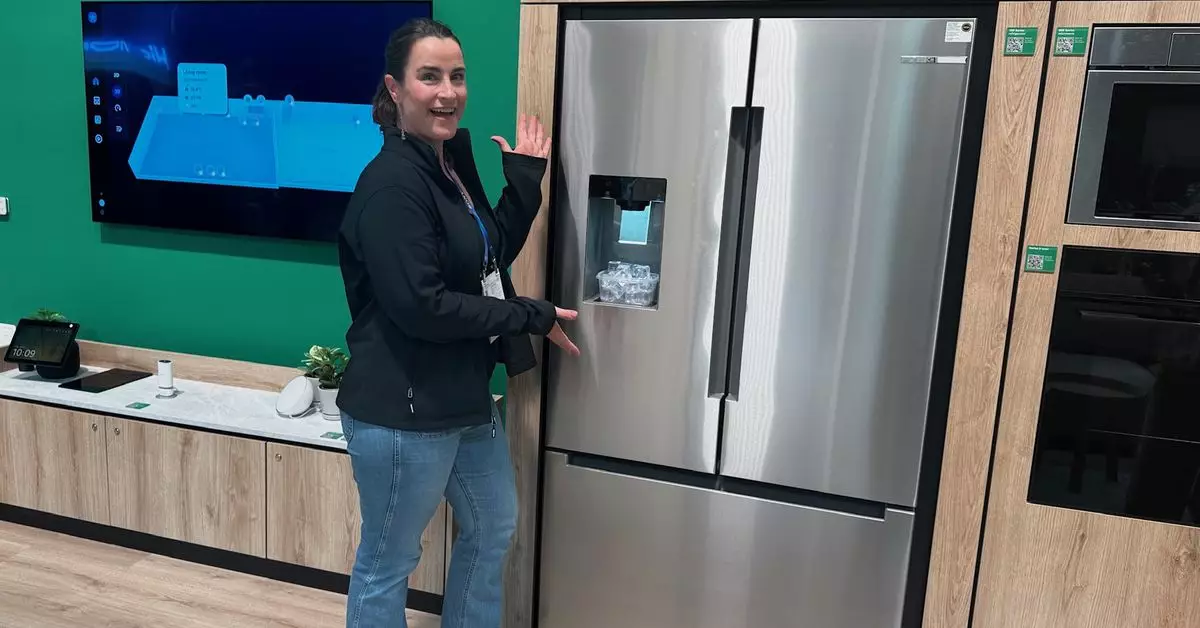In an age where technology continues to transform our daily lives, smart home appliances are increasingly becoming integral to modern households. The advent of connected gadgets has not only streamlined home management but also introduced a level of convenience that was once unimaginable. Home appliance giant Bosch has stepped to the forefront with its latest innovation: the 100 Series French Door Bottom Mount Refrigerator, which proudly showcases its Matter compatibility. This insightful integration promises to elevate the user experience in the realms of connectivity and functionality.
Matter serves as a transformative standard in the realm of smart home devices, aiming to bridge the gaps between various ecosystems. Developed with contributions from key industry players such as Apple, Amazon, Google, and Samsung, Matter is designed to enhance communication among connected gadgets, making it possible to establish a unified framework without depending on the cloud. A significant advantage of this standard is the security it offers, allowing devices to interact locally within a home network. This approach also contributes to faster response times and reduced latency, resulting in a more streamlined user experience.
For Bosch, the incorporation of Matter into their appliances signifies a pivotal moment, marking a potential shift in how consumers interact with their home gadgets. The move toward local connectivity means that homeowners can remotely adjust their refrigerator settings or receive updates, leading to more involved and interactive usage.
Set to launch this spring at a retail price of $2,500, Bosch’s 100 Series French Door Refrigerator is designed for both efficiency and contemporary living. Its advanced features offer homeowners the ability to control temperature settings via a smart home platform. Such capabilities are not entirely new; many smart refrigerators currently offer these functionalities. However, what distinguishes the Bosch model is the deepened integration provided by Matter, which ensures that alerts—such as notifying users if the refrigerator door is left ajar—are transmitted quickly and securely.
Eelco Lammertink from BSH, the parent company to Bosch, Siemens, Thermador, and Gaggenau, has outlined ambitious plans for the Matter compatibility expansion across their appliances. The upcoming firmware updates will enable the refrigerator to support Matter 1.3, ushering in an era where appliances can be more seamlessly woven into the larger smart home tapestry.
Despite the excitement surrounding Matter, not all existing Bosch appliances will benefit. Lammertink disclosed that legacy appliances would not receive updates to enable Matter compatibility—a point of disappointment for many users who have invested in non-compatible models. He attributed this decision to the significant challenges associated with retrofitting older technologies, emphasizing the importance of maintaining functionality and user satisfaction.
This limitation raises pressing questions about the future of smart appliances: as manufacturers pivot toward new standards like Matter, how will they balance innovation with the legacy of existing devices? Consumers invested in earlier models may find themselves at a crossroads, yearning for new features while grappling with potential obsolescence.
With plans for future enhancements, Bosch envisions a broader rollout of Matter across appliances, starting with refrigeration and moving to other categories in the coming years. This progression signals a commitment not only to innovation but also to convenience and energy management. By integrating energy reporting capabilities, Bosch hopes to position its refrigerators as vital components of an energy-conscious home ecosystem.
Bosch’s foray into the Matter-enabled appliance market represents a significant leap forward in the evolution of smart kitchen technology. As consumers’ expectations continue to evolve, Bosch’s innovations could very well redefine the standards for connectivity and seamless integration in modern home living. With the promise of enhanced interaction among smart devices on the horizon, homeowners can look forward to a future where reliability, efficiency, and advanced technology coalesce harmoniously within their kitchens.


Leave a Reply
You must be logged in to post a comment.